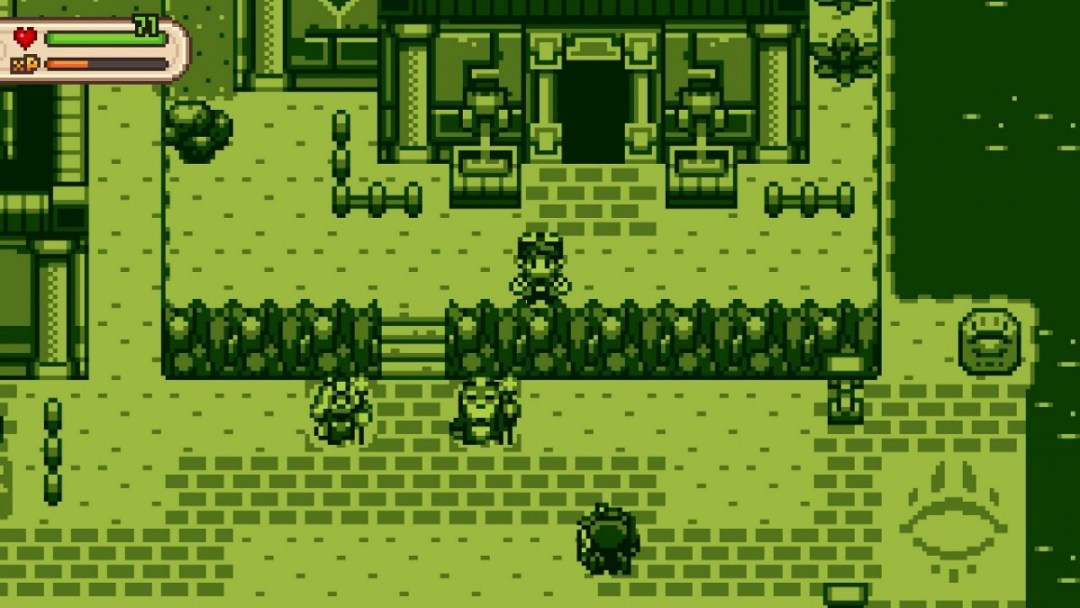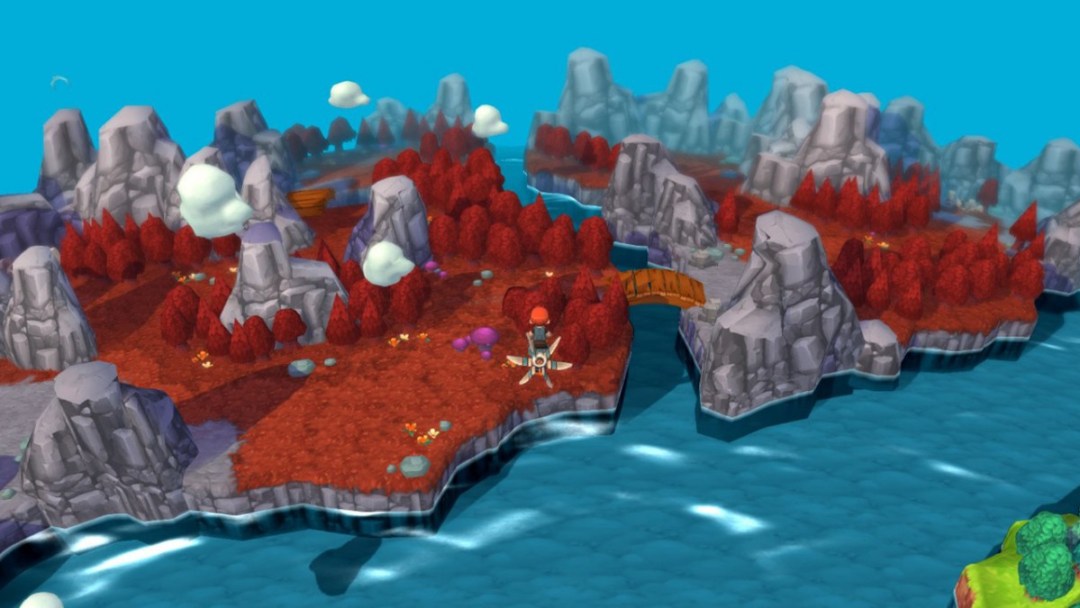RPGs are often a hard genre to really define. With so many different types of battle systems across the games and whole different approaches to how they actually play, one person’s idea of what an RPG is might be completely different to someone else’s – it’s a good thing really and shows just how diverse the genre can be and how it has evolved over time. Evoland: Legendary Edition embraces the concept of RPGs feeling so different and changing over time and REALLY runs with it…
Evoland: Legendary Edition offers both the original Evoland and its follow-up Evoland 2 in one package, with Shiro Games’ unique RPGs now available on console for the first time. Not heard of them? Basically, they’re RPGs that celebrate all of the mechanics of the genre from the past and modern times, with each game essentially evolving and changing its visual style and features as you progress. It’s a really neat idea that makes for an enjoyable time, though it is guilty of hitting a few little stumbling blocks along the way in both adventures.

There are two games included in Evoland: Legendary Edition but only Evoland 2 has a narrative that’ll grip you in – the first game just feels like a comical homage that doesn’t take itself too seriously. That being said, Evoland 2 can feel a bit clichéd initially thanks to the fact that you’re taking on the role of a hero who has lost his memory. It does take an interesting turn when you travel through time though and find that a lot of bad events have happened across the world – the fact that you may have actually been the one responsible for them gives it a nice twist. Both games are quirky in their own little ways and full of little pop-culture and video game references, but they prove entertaining enough and are well-written.
As mentioned, Evoland: Legendary Edition completely changes up the way it looks and plays as you progress. It starts off with a more simplistic art style that wouldn’t look out of place on a Game Boy, but eventually you’ll be heading across more colourful 3D worlds that’d fit in well on a modern console. It’s really neat seeing all of the different aesthetic styles that the game features though and they all managed to look nice in-game – sure, you shouldn’t expect the sort of high quality visuals you’d see in a triple-A RPG whilst some of the 16-bit sprites aren’t as detailed as those we saw on the SNES, but they still manage to look attractive and certainly made me feel invested in the evolution of the visual style.

It’s not just the visuals that show off signs of evolution either, with more simple things such as the player’s movement and health changing up too. You might only be able to walk in four directions to begin with for example, but more modern sections of the game see you moving diagonally too (wow). You can only take one hit before dying in earlier sections of the game too, but as soon as you unlock hearts that represent your health you become more durable. They’re little features that are easy to take for granted in a typical RPG, but the way they’re slowly introduced in Evoland: Legendary Edition makes you appreciate how big of a difference they make.
Of course, one of the biggest changes made throughout each game is the change to the combat and puzzling mechanics, with Evoland: Legendary Edition taking inspiration from the likes of The Legend of Zelda, Final Fantasy, Fire Emblem and even Diablo throughout your adventure. Heck, Evoland 2 even feels like a platformer, a shoot ‘em up and Bomberman at times, so it shows there’re a whole lot of changes to encounter as you work through the game. I’d say the most used of the RPG tropes is the whole Zelda-style, with dungeons and puzzles aplenty as you get through the game – you never know when the game will completely swing another way though, so there’s excitement to be found in the unpredictability.

There’re plenty of mini-games based upon video games thrown into the mix too, though I don’t want to detail them too much just to keep them more of a surprise – there’s something charming about uncovering another nod to a classic title, even if it might not necessarily come under the RPG genre. There are also card games to be found across both Evoland and Evoland 2, which I’m sure fans of Final Fantasy VIII’s Triple Triad and Hearthstone will particularly appreciate…
Evoland: Legendary Edition certainly smashes it as far as offering variety is concerned and it deserves a lot of praise for doing so many different things, but it is a little guilty of simplifying these features. Sure, it’s great to see that both games embrace so many elements from other RPGs, but it’s clear that what you get here is a lot more dumbed-down and not as fleshed out as you’d be used to. I’m a huge fan of both turn-based and action-RPG battling and Evoland: Legendary Edition allowed me to do both – however, both had also been done a LOT better in RPGs that embraced those mechanics alone.
It’s not necessarily a bad thing because one of the strongest points found across both games is the variety of gameplay mechanics that it offers as opposed to the quality of them, whilst nothing in the game ever necessarily feels outright bad. RPG aficionados who appreciate the finer details and depth of the genre might be left a little underwhelmed with just how simple some aspects of Evoland: Legendary Edition can be though.

I also came across a few performance issues, with visual bugs here and there and the game even crashing out completely on one occasion. It’s hard to say what actually triggered some of these issues to occur, but I’d see some on more than a few occasions. The frame rate could struggle during some of the 3D sections too, though fortunately it wasn’t a common or big enough issue to ruin the gameplay experience.
Summary
Evoland: Legendary Edition offers two enjoyable RPG experiences that are each very varied in design and well-written, with Evoland 2 in particular standing out as the pick of the pair. It constantly surprised me with the mini-games and the ever-changing gameplay dynamics, whilst it also brought a meatier adventure that took some time to work through.
Whilst entertaining though, neither game really fleshes out their gameplay mechanics all that much. Sure, there’re a lot of things to do, but they’re things that would’ve felt more meaningful and enjoyable in other RPGs you’ve played. It’s not a bad thing, but it’s something noticeable if you’re a fan of other releases in the genre.
Still, the package as a whole is definitely worth taking a look at if you enjoy your RPGs and, besides a few performance issues here and there, there’s a lot of fun to be had playing through Evoland: Legendary Edition. It might not offer the most in depth RPG experience you’ll have, but it’s one that does everything it can to celebrate the genre.
Developer: Shiro Games
Publisher: Shiro Games
Platform(s): Nintendo Switch (Reviewed), PlayStation 4, Xbox One, PC




